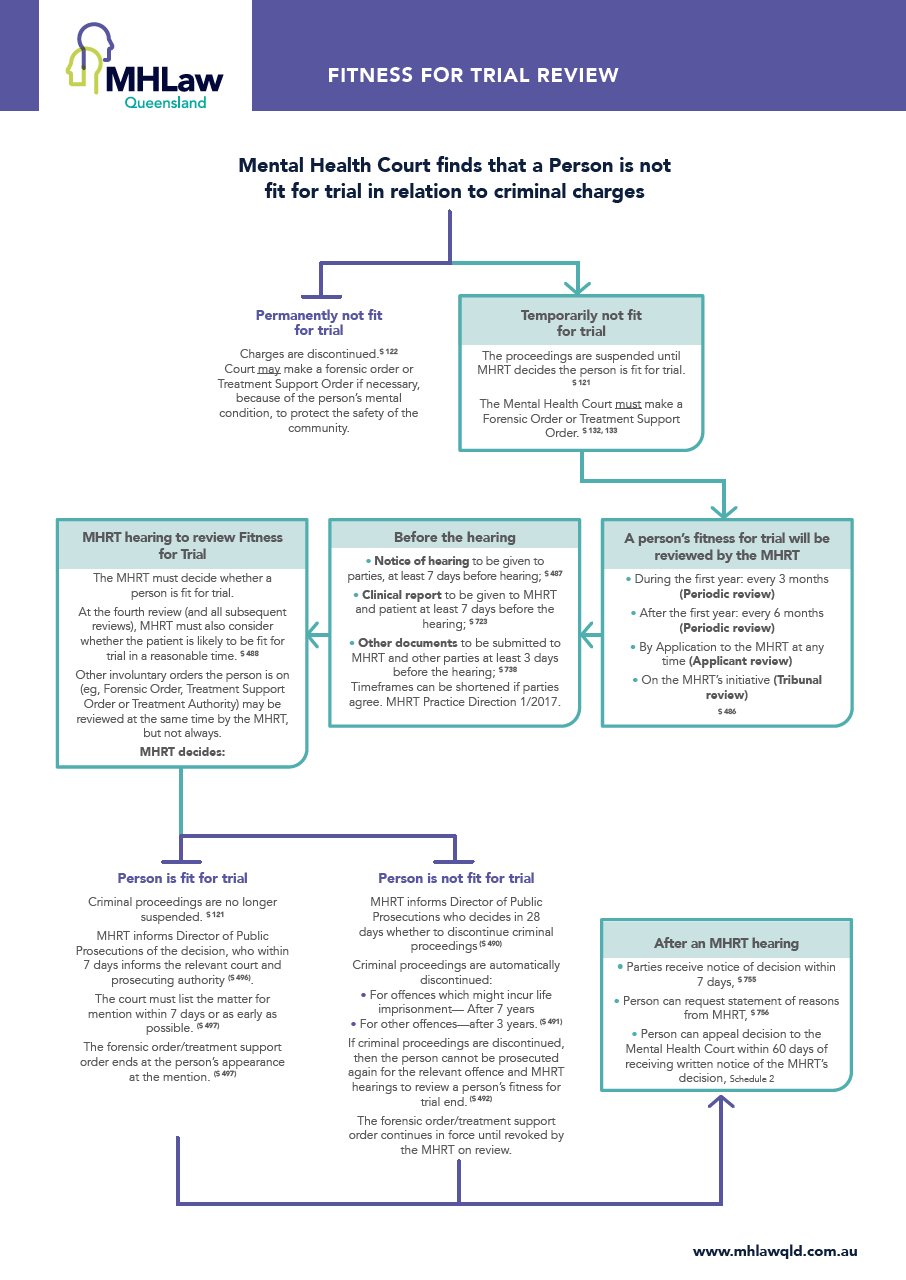A person’s criminal charges may be referred to the Mental Health Court for determination of whether the person should be given a defence due to their mental illness or intellectual disability. This can result in a finding that a person is not fit for trial. Refer to the flowcharts ‘What happens to criminal charges if a patient has a mental illness/intellectual disability?”
Parties to Review
- The person,
- The administrator of the authorised mental health service and chief psychiatrist, if they are responsible for the person
- The Forensic Disability Service and Director of Forensic Disability, if they are responsible for the person
- The Attorney-General
S 487, S 736
Attendance at Hearing
- The patient is encouraged to, but does not have to attend the hearing.
- The person will be appointed a free legal representative, unless already represented or patient waives right to representation, S 740.
- Patient can bring a support person, S 739
- One or more members of the patient’s treating team must attend the hearing.
- Hearings can be attended in person, by phone or, if available, by videoconferencing.
Evidence Considered by MHRT
- Documents
- Clinical report
- Most recent decision from the MHRT
- Hearing notice
- Dossier (Mental Health Court order, and other relevant documents) the Mental Health Court and any reports)
- If applicant review— application form
- Any other documents submitted by doctor applicant or patient (including patient self-report)
- Oral information given by people attending the hearing.
Criteria Fitness for Trial
There is no criteria for fitness for trial in the Mental Health Act 2016 (Qld). The MHRT uses the criteria from R v Presser [1958] VR 45 (the Presser test) to make a decision about fitness. The Presser test states that for a person to be fit for trial, they must be able to do all of the following:
- Ability to understand the charge — this involves a basic understanding of the essential facts of the charge and the elements of the offence.
- Ability to plead to the charge and to exercise the right of challenge — the client must understand that a plea of guilty is an acceptance that the essential facts and elements of the offence are established.
- An understanding of the nature of the proceedings, namely, that it is an inquiry as to whether he/she committed the offence charged — the client must understand that he/she is involved in a formal process inquiring into his/ her responsibility for the matter alleged and be aware of the potential consequences of that process.
- Ability to follow the course of proceedings so as to understand what is happening in court in a general sense, though not necessarily understand the purpose of all the various court formalities — this involves following the proceedings and understanding the roles of the various participants.
- Ability to understand the substantial effect of the evidence that may be given — the client must have an awareness of the implications of the prosecution evidence.
- Ability to make a defence or answer to the charge — the client must be able to give the court a basic version of the facts as he/she claims them to be, if necessary through his/her lawyer, by entering the witnesses box and responding to questions in evidence-in-chief and cross-examination.
From Legal Aid Queensland—Criminal Law Duty Lawyer Handbook, Ch 14
Unless otherwise specified, references to sections (S) are in relation to the Mental Health Act 2016 (Qld).







